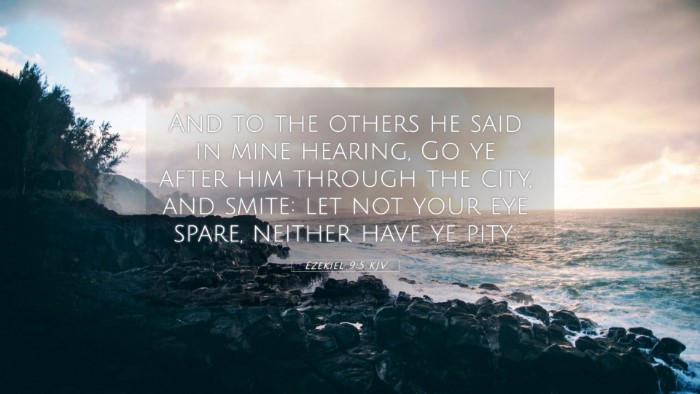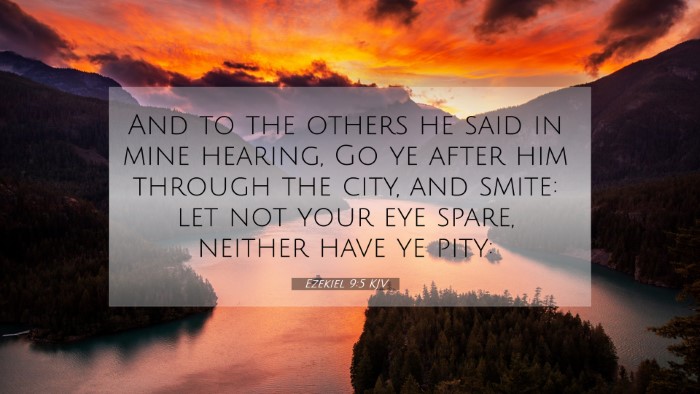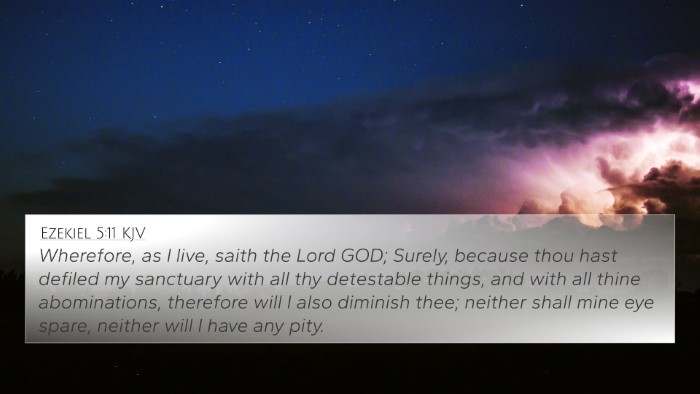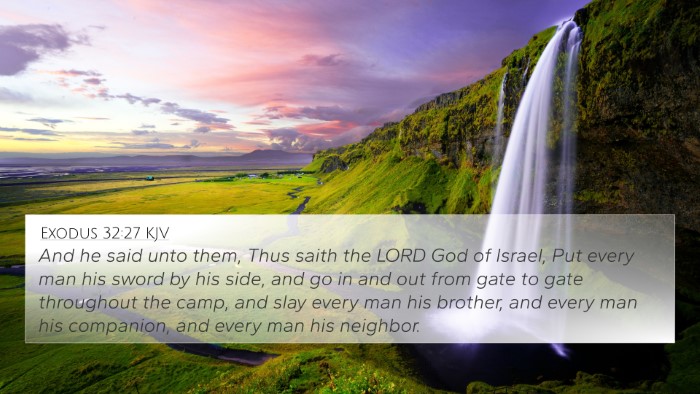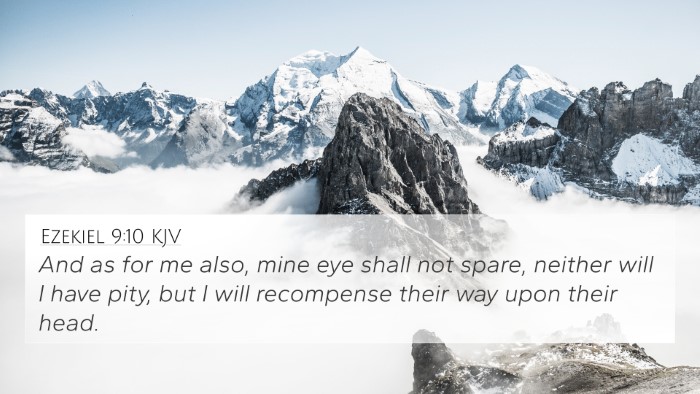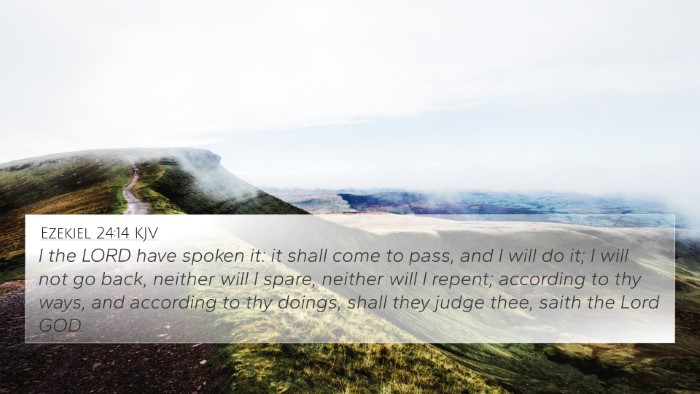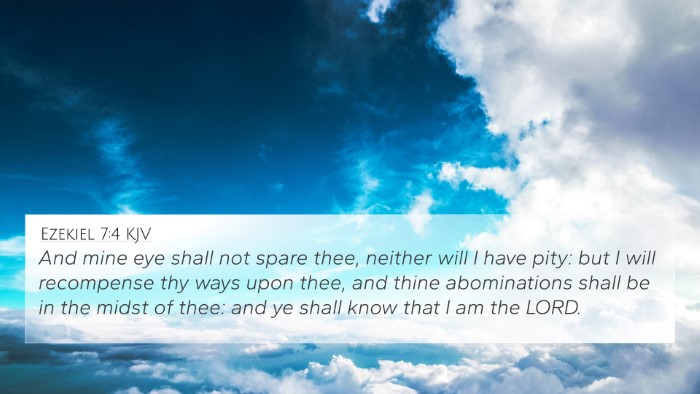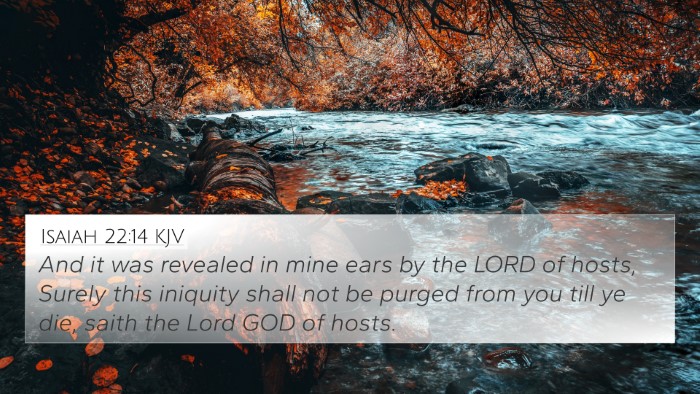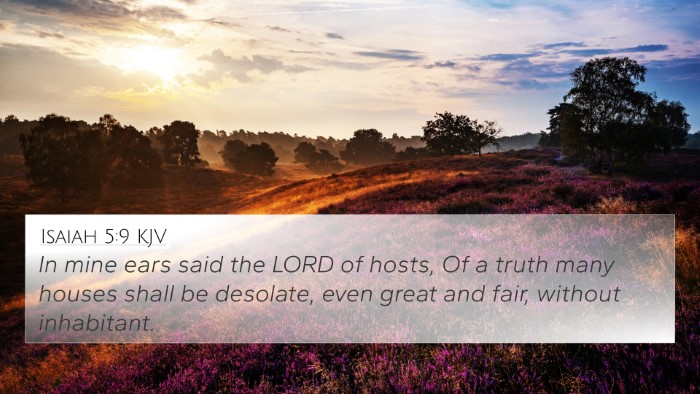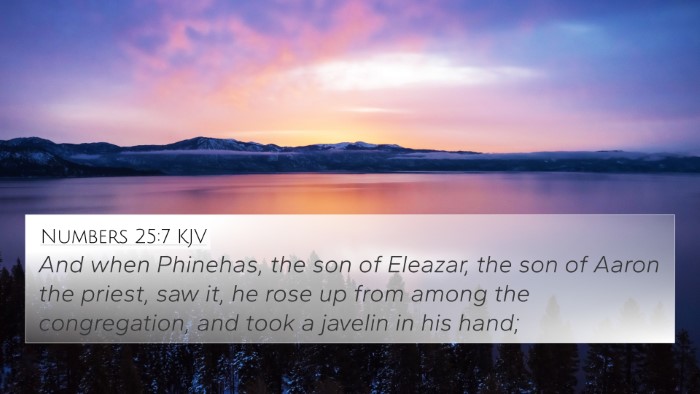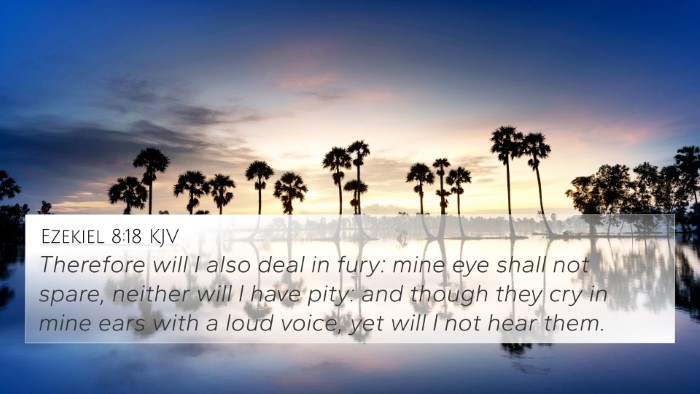Ezekiel 9:5 - Verse Meaning and Interpretation
Ezekiel 9:5 states: "And to the others he said in my hearing, 'Go through the city and slay the inhabitants; let not your eye spare, and have no pity!'
Summary of Ezekiel 9:5
This verse is part of a larger prophetic vision given to Ezekiel, where God commands a judgment against those in Jerusalem who are guilty of sin. The directive to slay the inhabitants illustrates God's judgment and the seriousness of sin, especially among His people.
Interpretation from Public Domain Commentaries
Matthew Henry's Commentary
Henry explains that the command given in Ezekiel 9:5 highlights God's justice. The phrase "let not your eye spare, and have no pity" emphasizes the severity of the punishment being executed upon the unrepentant. This reflects God's holiness and the moral order where disobedience leads to dire consequences.
Albert Barnes' Commentary
Barnes notes that the judgment depicted here serves as a historical warning and a prophetic message about the consequences of persistent sin. It represents a time of divine retribution, where the faithful and the unfaithful would be distinguished.
Adam Clarke's Commentary
Clarke elaborates on the concept of divine judgment portrayed in this verse. He emphasizes the grave responsibility Israel had towards following God's laws, indicating that such a directive was necessary to demonstrate the seriousness of their departure from divine commands.
Theological Reflections
The essence of Ezekiel 9:5 can be understood through a lens of the following theological reflections:
- Divine Justice: The harshness of the command illustrates God's commitment to justice.
- Severity of Sin: The lack of mercy depicted demonstrates how serious sin is regarded in God's eyes.
- Call to Repentance: It warns the faithful to remain steadfast and repent from sin to avoid judgment.
Cross References for Ezekiel 9:5
This verse connects with numerous other scriptures that reflect similar themes of judgment and divine retribution.
- Jeremiah 25:29: "For behold, I begin to bring disaster on the city that is called by My name..." - A call to recognize God’s impending judgment.
- Revelation 6:8: "And I looked, and behold, a pale horse, and its rider's name was Death..." - The portrayal of final judgment themes.
- Matthew 10:28: "And do not fear those who kill the body but cannot kill the soul..." - An affirmation of God’s sovereignty over life and punishment.
- Isaiah 66:16: "For by fire will the Lord enter into judgment..." - Divine judgment is a recurring biblical theme.
- Romans 2:6: "He will repay each one according to his works..." - God’s justice as a central theme in Christian theology.
- 2 Thessalonians 1:8: "In flaming fire, inflicting vengeance on those who do not know God..." - Warning of God’s judgment against unfaithfulness.
- Luke 19:27: "But as for these enemies of mine, who did not want me to reign over them, bring them here and slaughter them before me." - The finality of judgment occurs in the New Testament as well.
Learning through Cross-Referencing
Cross-referencing biblical texts facilitates a deeper understanding of Ezekiel 9:5. It connects to overall themes within scripture including:
- The nature of justice in God’s character.
- The concept of sin and its dictates across both Old and New Testaments.
- The continuity of God’s judgment throughout biblical history.
Tools for Bible Cross-Referencing
Utilizing tools for Bible cross-referencing can enhance study and understanding of verses like Ezekiel 9:5:
- Bible Concordance: A valuable resource to locate keywords and their occurrences throughout scripture.
- Bible Cross-Reference Guide: Offers insights into related passages for comparative study.
- Bible Application Study Tools: Better understanding the application of verses in today's context.
Conclusion
Ezekiel 9:5 not only reflects God's judgement but also serves as an essential reminder of the consequences of sin. By engaging in cross-referencing with other scriptures, one can find a profound interconnectedness within the Word of God that reinforces the depiction of divine justice and mercy.

